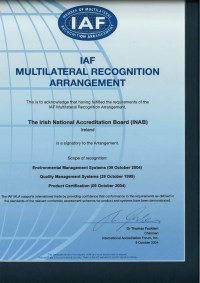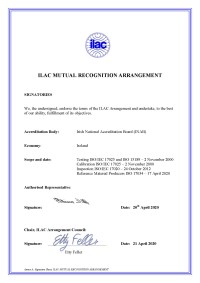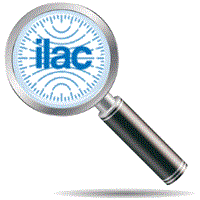Become an Assessor with INAB
International Context for Accreditation
In most developed economies there is a body similar to the Irish National Accreditation Board. INAB is Ireland’s signatory to European and international multilateral agreements (MLAs) with EA, ILAC and IAF:
- EA (European co-operation for Accreditation)
- IAF (International Accreditation Forum, Inc.)
- ILAC (International Laboratory Accreditation Cooperation)
One of INAB’s main objectives is to ensure international acceptance of reports and certificates issued by our accredited organisations and conversely to ensure acceptance of reports or certificates issued by conformity assessment bodies accredited by accreditation bodies that are signatories to MLAs with the above organisations.
INAB achieves this objective through maintaining its status as a signatory to these multilateral agreements.
It is important for goods and services tested or certified in Ireland to be accepted in Europe and worldwide without the need for additional testing or verification. Accreditation is the means of achieving this.
Co-operation with Accreditation Bodies (Cross Frontier)
INAB applies EA document EA-2/13 (Policy and Procedure for Cross Border Cooperation between EA Members ) and ILAC G21 (Cross Frontier Accreditation - Principles for Cooperation), through its policy document, PS19.
For information on cross frontier co-operation please email CFcooperation@inab.ie
Multilateral Agreements (MLAs)
The EA MLA is an agreement signed between the European Co-operation for Accreditation (EA) accreditation body members to recognise the equivalence, reliability and therefore acceptance of accredited certifications, inspections, calibration certificates, test reports and reference materials across Europe. Currently, INAB is a signatory to the EA MLA for accreditation of testing (including medical testing) & calibration laboratories, inspection bodies, management systems certification bodies, product certification bodies, and reference material producers, collectively known as conformity assessment bodies, or CABs.
The MLA eliminates the need for suppliers of products or services to be certified in each country where they sell their products or services, and therefore provides a means for goods and services to cross boundaries in Europe.
It delivers confidence in the service supplied by accredited laboratories, inspection and certification bodies, thereby providing the framework for goods and services to cross European borders, and acting as a "passport for trade."
The EA MLA is recognised at worldwide level through the International Accreditation Forum (IAF) and the International Laboratory Accreditation Cooperation (ILAC) and it is through this mechanism that European accreditation bodies (ABs) attain international recognition for their accredited CABs, meaning that goods and services can cross boundaries, not only in Europe, but around the world.
The EA MLA is maintained through a robust peer evaluation system. These on-site evaluations confirm INAB’s continued conformity to internationally accepted criteria. INAB is evaluated against ISO 17011, applicable EA, IAF and ILAC documents and is overseen by the EU Commission, the EA Multilateral Agreement Council (MAC) and national authorities. Peer evaluation teams regularly include representatives from ILAC and IAF.
INAB’s peer evaluation history:
- 1993: 1st peer evaluation: accreditation of test and calibration laboratories
- 1997: Scope extended to include accreditation of quality and environmental management system certification bodies
- 1999: Follow-up visit
- 2002: Scope extended to include accreditation of product certification bodies
- 2006: Scope extended to include accreditation of inspection bodies
- 2010: Routine evaluation, and testing MLA was expanded to include medical laboratories
- 2014: Routine evaluation
- 2018: Scope extended to include accreditation of reference material producers
- 2021: Scope extended to include accreditation of persons certification bodies.
- 2022: Routine evaluation.
- 2026: INAB's next routine peer evaluation is due.
| INAB is signatory to the following MLAs: | |
European co-operation for Accreditation (EA) Click on the image to see INAB's full scope of recognition The EA MLA Process | |
International Accreditation Forum (IAF) Click on the image to see INAB's full scope of recognition IAF Signatory Search - Click the here |  |
International Laboratory Accreditation Co-operation (ILAC) Click on the image to see INABs full scope of recognition
|  |
Marks for International Recognition of Accreditation
ILAC and IAF have developed marks which can be used by the member accreditation bodies and their accredited bodies under specific conditions set out in a licence agreement.
The ILAC and IAF marks demonstrate:
- the signatory status to the ILAC / IAF arrangement;
- that the test report or certificate has been issued by a body accredited by a member of the ILAC / IAF arrangement. As such, it can be recognised and accepted by any of the signatories of these arrangements.
The INAB Services section provides further information on these marks and their use by accredited clients for each accreditation standard.
EU Regulation 765/2008
EU Regulation 765/2008 provides a legal framework for the provision of accreditation services for conformity assessment activities across Europe. It emerged against the background of a growing recognition of the importance of accreditation to the EU’s economic infrastructure. The Regulation covers the operation of accreditation in support of voluntary conformity assessment as well as conformity assessment required by legislation. The Regulation is part of a legislative suite aimed at maximising the potential of the Single Market in the free movement of goods throughout the European Union.
The single European market allows the free movement of goods, services and personnel within the European Union. This free trade presupposes confidence in the product or service being offered and can only be effective upon elimination of technical barriers to trade. Member States of the EU have established a network of national accreditation bodies, which ensures that the competence of all laboratories, inspection and certification bodies are assessed to the same principles.
The European Commission recognises accreditation as the preferred mechanism for the elimination of technical barriers to trade and has stated “Accreditation is essential for the correct operation of a transparent and quality-oriented market.” Accreditation can provide competitive advantage and facilitate access to export markets, in addition to acting as a catalyst to raise standards and institute improved work practices.
Accreditation is often required to demonstrate conformance with the requirements of laws, official regulations and EU Directives.
Accreditation in support of regulation has grown significantly in recent years and the European Cooperation for Accreditation (EA) has compiled a document referencing all European legislation requiring accreditation. The document can be found here



